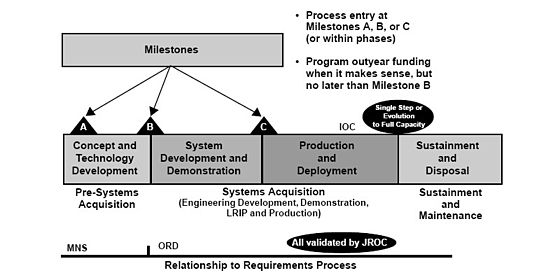Talk:Procurement
| This is the talk page for discussing improvements to the Procurement article. This is not a forum for general discussion of the article's subject. |
Article policies
|
| Find sources: Google (books · news · scholar · free images · WP refs) · FENS · JSTOR · TWL |
| This article is rated C-class on Wikipedia's content assessment scale. It is of interest to the following WikiProjects: | ||||||||||||||||||||||||||||||||||||||||||||||||||||||||||||||||
| ||||||||||||||||||||||||||||||||||||||||||||||||||||||||||||||||
|
 Archives (Index) |
|
This page is archived by ClueBot III.
|
Student assignment in 2022[edit]
![]() This article was the subject of a Wiki Education Foundation-supported course assignment, between 26 January 2022 and 14 May 2022. Further details are available on the course page. Student editor(s): Noah Wetz (article contribs). Peer reviewers: 3113N3113N, JEOushak.
This article was the subject of a Wiki Education Foundation-supported course assignment, between 26 January 2022 and 14 May 2022. Further details are available on the course page. Student editor(s): Noah Wetz (article contribs). Peer reviewers: 3113N3113N, JEOushak.
— Assignment last updated by PeaceProsperityDemocracy (talk) 13:44, 18 July 2022 (UTC)
Selection in planning[edit]
Does the "selection in planning" process really exist? I have never heard of it, it is labelled as original research in this article and there are no citations in the article on this topic. Discuss at the "Selection in planning" talk page. BobKilcoyne (talk) 04:45, 22 July 2022 (UTC)
Re-structured[edit]
I've just restructured this article a bit so that we don't have so many main level headings. Also, I have moved content to government procurement and brought it back by using an excerpt. This avoids having similar content in two articles, and it also improved the government procurement article at the same time. EMsmile (talk) 10:51, 7 June 2024 (UTC)
Text block about acquisition process removed[edit]
I've removed this large text block because in my opinion it was digressing into other areas. NB the exact same content is also at purchasing where it might fit better. If it needs to stay it should be condensed a lot. Pinging User:Mdd because they had added it in 2007, in case they want to comment. EMsmile (talk) 11:10, 7 June 2024 (UTC)
+++++++
A linear acquisition process used in industry and defense is shown in the next figure, in this case relating to acquisition in the technology field. The process is defined by a series of phases during which technology is defined and matured into viable concepts, which are subsequently developed and readied for production, after which the systems produced are supported in the field.[1]

The process allows for a given system to enter the process at any of the development phases. For example, a system using unproven technology would enter at the beginning stages of the process and would proceed through a lengthy period of technology maturation, while a system based on mature and proven technologies might enter directly into engineering development or, conceivably, even production. The process itself includes four phases of development:[1]
- Concept and technology development is intended to explore alternative concepts based on assessments of operational needs, technology readiness, risk, and affordability.
- The concept and technology development phase begins with concept exploration. During this stage, concept studies are undertaken to define alternative concepts and to provide information about capability and risk that would permit an objective comparison of competing concepts.
- The system development and demonstration phase could be entered directly as a result of a technological opportunity and urgent user need, as well as having come through concept and technology development.
- The last, and longest phase is the sustainable and disposal phase of the program. During this phase all necessary activities are accomplished to maintain and sustain the system in the field in the most cost-effective manner possible.
References
- ^ a b c Systems Engineering Fundamentals. Defense Acquisition University Press, 2001 Archived 27 September 2007 at the Wayback Machine
- C-Class WikiProject Business articles
- Top-importance WikiProject Business articles
- WikiProject Business articles
- C-Class Trade articles
- Top-importance Trade articles
- WikiProject Trade articles
- C-Class Systems articles
- Mid-importance Systems articles
- Systems articles in systems engineering
- WikiProject Systems articles
- C-Class Materials articles
- High-importance Materials articles
- WikiProject Materials articles
- C-Class Transport articles
- High-importance Transport articles
- WikiProject Transport articles
- C-Class Economics articles
- Mid-importance Economics articles
- WikiProject Economics articles








